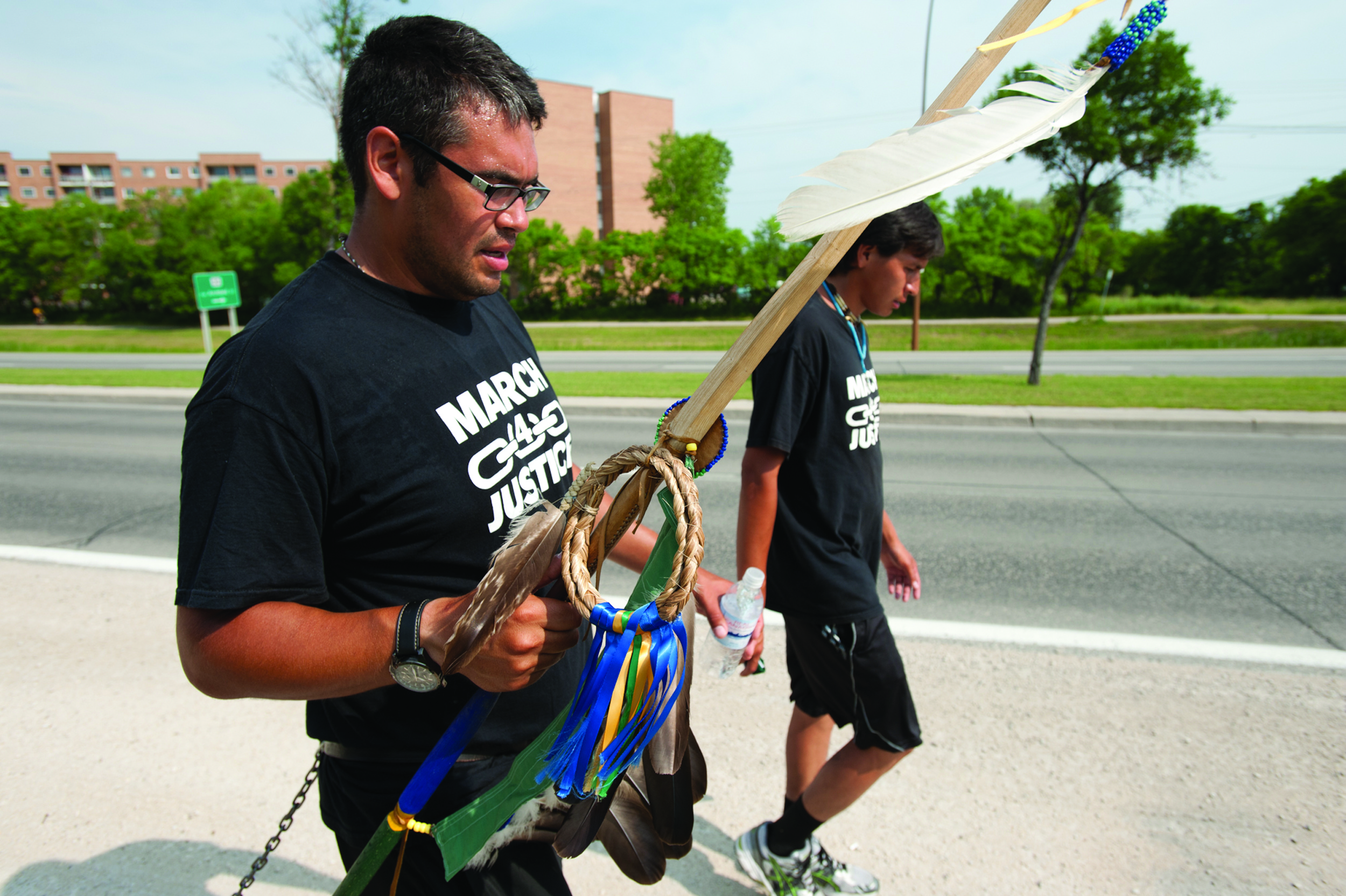Craig Pauls
“I’m doin’ you a favour,” the cop said, handing me a $325 ticket.
What could I say but, “Thanks. I’m a disabled vet and a student now. I really appreciate the discount.”
“I could have made it for $100 more,” he warned. “You were actually doing 80 in a 50.”
“It was a 70 zone the last time I drove here,” I argued—truthfully—but in the same instant I knew it was futile. I was trying to get past a sluggish semi doing 40, as there was an imposing hedge of orange and black placards and pylons in the left lane up ahead. I stole a glimpse at his radar gun; it read, “71 km/h.”
I had hoped for a warning, but he walked away to write the ticket – warnings don’t pay down the city’s deficit. The other motorists who were queued up along the shoulder waiting for their tickets had obviously done the same thing. I sighed. I had made the mistake of travelling in an area I wasn’t overly familiar with, and once again became the victim of a police hustle.
These traffic cops are not hard to find. They seem to be drawn to roads where the posted speed limits were recently lowered or change abruptly, and therefore where opportunities to replenish the city’s depleted coffers run high.
Is this an extension of Project Drive? As you may recall, that was the fiasco where city police were directed to charge an additional $1 million in fines from the public. They were successful, but logged $860,000 in overtime to do it. What does that boil down to for you and me? If a traffic cop hands you a $100 ticket for not having enough windshield washer fluid, $86 of it could be going into their pocket.
I digress. I don’t know what the mayor’s extended fiscal goal is, but I do know I appear to be well on my way to funding it myself. In the 30 years I’d been driving prior to last year, I had never earned a single traffic ticket, but in the last 12 months I’ve had three and had my vehicle towed.
My spouse, with the same impeccable driving record, has been similarly violated, and in one instance she was accused of rocketing from 0 to 90 km/h in three seconds in her Yaris after rounding the corner at an intersection. She apparently did this while sandwiched between two other vehicles.
And then there was an incident we were involved in last fall where the lives of several motorists were actually endangered by the police.
We were westbound on Bishop Grandin, travelling at just over 80 km/h, as were the rest of the vehicles around us. Suddenly, just beyond the Pembina Highway underpass, the driver in front of us slammed on his brakes. I locked up mine and heard the squeal of tires all around us.
“There’s some idiot in a yellow windbreaker running across the highway!” my spouse exclaimed.
I took a closer look. It was a cop.
He stopped in the middle of the highway, pointed at a silver SUV in the middle of our pack of a dozen cars, and vigorously motioned the driver to the shoulder where an unmarked car and two black and whites stood ready to chase down anyone who might rabbit.
We sat there in stunned silence for half a minute, unsure if we should proceed or if we were supposed to wait around for a ticket. Finally one vehicle crept forward and the rest of us followed.
My spouse and I recently sat down to calculate the personal cost of all this nonsense. Our conclusion: the City of Winnipeg had claimed three per cent of our take-home pay in the previous year, and we don’t even live there. There is obviously no way to recoup that money, but we have made some small, symbolic financial changes. We had been planning three major purchases in the near future. We won’t be buying any of them in Winnipeg now, thereby diverting at least $25,000 from the city’s economy.
We used to fill up our vehicles in the city once a week, and it cost roughly $125 for both of us. We now fill them at our local gas station, even though it costs a few cents more per litre. We also went out for dinner in Winnipeg every Friday, but now we’re checking out small-town restaurants closer to home, another $50 a week spent elsewhere. We’ve started buying our groceries and household items in Steinbach as well – let’s call that $100 a week. In a year, that’s another $14,300, for a total of $39,300 we won’t be spending in Winnipeg.
It’s a drop in the bucket, of course, and I’m not sure how much lost tax revenue that equates to, but it’s a form of protest and it makes us feel like we’re at least doing something. And with us spending less time on Winnipeg streets, there is less of a chance we will be victimized again.
Is there a solution? Perhaps. In my perfect world, three quarters of the Winnipeg Police Service traffic gang would be reassigned to other police work. Senior management is always expressing a need for more officers; why can’t they just use some of the ones they already have for something more productive?
For change to happen, the citizens of Winnipeg need to elect a new mayor with new policies, and if they won’t, they should at least find a police chief who will stand up to, rather than comply with, the City Council’s witch hunt.
The police are supposed to protect the public, not prey on it.




